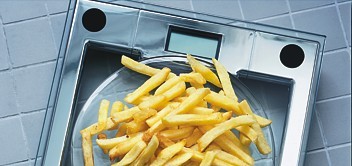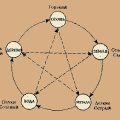 How many calories to use toto lose weight Analyzing perverse mechanisms and sometimes dramatic consequences of this type of behavior, Jean-Philippe Zermati offers exercises that allow reconciliation with food and ... with their own weight. Consultant: Jean-Philippe Zermati Like many colleagues, for many years he prescribed various diets for patients . In the end, disappointed in the results, the French nutritionist received a psychotherapeutic education and radically changed his approach to the problem. Psychologies: Do you think we are all potential victims of a serious eating disorder? Jean-Philippe Zermati: Alas, it is. Today, most women (and men rush to join them!) Consider themselves - rightly or not - to be fat, but they are not able to achieve stable weight loss. This phenomenon, which psychologists call the term “cognitive self-restraint,” is an unconscious setting that forces you to restrict or try to limit yourself to food. Thus, our behavior is no longer governed by our sensations (hunger, taste, inclination), but is subordinated to the intellect. Our installations - to eat a balanced diet, drink plenty of water, do not skip meals - are determined by a variety of dogmas and ideas. To put it simply, people who limit themselves in food divide products into two categories: those from which they grow fat, and those from which they lose weight. What is the main problem? Ignoring hunger and satiety, their preferences and dislike for one or another food, such people cease to perceive these natural signals! And then nutrition becomes a problem: after all, to think about how to eat less or differently, you still need, paradoxically, to think about food! This occupation of our consciousness by thoughts of food causes desperate resistance to temptation. But the stronger the resistance, the more powerful our insanity in food ... However, the resources of our will are not infinite, and sooner or later we lose our self-control, succumb to the temptation! Constantly “fighting” with food, we cease to understand what we are: “Are there any products that give pleasure, from which they do not grow stout?”, “If I start to eat it, will I be able to stop?” places of spontaneous, free behavior. What psychological consequences does this lead to? At first, everything goes fine. There is a feeling that we can control our desires. Despite the limitations, we even experience some euphoria from the fact that by all means we regain the “ideal body”. To become the master of your body is to gain self-confidence, that you are not drifting, that you are a strong-willed person. But gradually, the euphoria is gone, replaced by irritability and hypersensitivity, which are difficult to bear for loved ones. "Voluntarily starving" are characterized by increased anxiety, are subject to stress and depression. If you very strictly limit yourself, it leads to attention disorders, interferes with your studies, work. Finally, when a person breaks down, he is haunted by a sense of shame and guilt, it undermines his self-esteem. So are these breakdowns inevitable? Some people manage to hold on for a very long time — a year, ten years, and even more! They build their lives around this struggle and develop strategies to avoid forbidden foods: refuse invitations to visit, convince themselves that they hate fatty and sweet ... They are sure that they do not lose anything in this struggle, but in fact it costs them very much dear: they only do that they are protected from their desire to eat! Why do they lose their self-control? Because of frustration, fear of breaking, of fear of getting fat, these emotions are pushing us to food. Nutrition is a natural source of comfort. When, under the influence of anxiety or stress, a person eats a chocolate bar, he feels guilty and needs even more consolation: he eagerly absorbs the desired product in order to forbid him again tomorrow. Can you break the vicious circle? tortured, they decide to control themselves less. For others, eating restrictions are accompanied by psychological problems, and then it is better to undergo a course of cognitive therapy. By tracking our behavior, we learn to distinguish between real hunger from the desire to chew, find out when we eat more than the body needs, but not only that. Thanks to therapy, we can return forbidden foods to our diet, cultivate taste, and recognize that some foods comfort and calm us. Working with emotions can free us from the endless struggle with kilograms. But how are we going to lose weight if we stop controlling ourselves? Nutritionists have calculated that the excess of human energy needs by 25 calories per day (this is one piece of sugar!) In 10 years will turn into 9 kg of weight! But we all know people who do not recover every ten years at nine kilograms. What is their secret? They are guided by their eating sensations. By listening to them, you too can re-sense your normal weight. Maybe this is not the weight that doctors demand from you, and it certainly will not coincide with the ideal of glossy magazines. However, it will be your normal, physiologically and genetically predetermined weight, and you should take it. Control questionsDo you think that “cognitive self-restraint” in food is yours? What do you think, from which of the two options does the menu get more fat?
How many calories to use toto lose weight Analyzing perverse mechanisms and sometimes dramatic consequences of this type of behavior, Jean-Philippe Zermati offers exercises that allow reconciliation with food and ... with their own weight. Consultant: Jean-Philippe Zermati Like many colleagues, for many years he prescribed various diets for patients . In the end, disappointed in the results, the French nutritionist received a psychotherapeutic education and radically changed his approach to the problem. Psychologies: Do you think we are all potential victims of a serious eating disorder? Jean-Philippe Zermati: Alas, it is. Today, most women (and men rush to join them!) Consider themselves - rightly or not - to be fat, but they are not able to achieve stable weight loss. This phenomenon, which psychologists call the term “cognitive self-restraint,” is an unconscious setting that forces you to restrict or try to limit yourself to food. Thus, our behavior is no longer governed by our sensations (hunger, taste, inclination), but is subordinated to the intellect. Our installations - to eat a balanced diet, drink plenty of water, do not skip meals - are determined by a variety of dogmas and ideas. To put it simply, people who limit themselves in food divide products into two categories: those from which they grow fat, and those from which they lose weight. What is the main problem? Ignoring hunger and satiety, their preferences and dislike for one or another food, such people cease to perceive these natural signals! And then nutrition becomes a problem: after all, to think about how to eat less or differently, you still need, paradoxically, to think about food! This occupation of our consciousness by thoughts of food causes desperate resistance to temptation. But the stronger the resistance, the more powerful our insanity in food ... However, the resources of our will are not infinite, and sooner or later we lose our self-control, succumb to the temptation! Constantly “fighting” with food, we cease to understand what we are: “Are there any products that give pleasure, from which they do not grow stout?”, “If I start to eat it, will I be able to stop?” places of spontaneous, free behavior. What psychological consequences does this lead to? At first, everything goes fine. There is a feeling that we can control our desires. Despite the limitations, we even experience some euphoria from the fact that by all means we regain the “ideal body”. To become the master of your body is to gain self-confidence, that you are not drifting, that you are a strong-willed person. But gradually, the euphoria is gone, replaced by irritability and hypersensitivity, which are difficult to bear for loved ones. "Voluntarily starving" are characterized by increased anxiety, are subject to stress and depression. If you very strictly limit yourself, it leads to attention disorders, interferes with your studies, work. Finally, when a person breaks down, he is haunted by a sense of shame and guilt, it undermines his self-esteem. So are these breakdowns inevitable? Some people manage to hold on for a very long time — a year, ten years, and even more! They build their lives around this struggle and develop strategies to avoid forbidden foods: refuse invitations to visit, convince themselves that they hate fatty and sweet ... They are sure that they do not lose anything in this struggle, but in fact it costs them very much dear: they only do that they are protected from their desire to eat! Why do they lose their self-control? Because of frustration, fear of breaking, of fear of getting fat, these emotions are pushing us to food. Nutrition is a natural source of comfort. When, under the influence of anxiety or stress, a person eats a chocolate bar, he feels guilty and needs even more consolation: he eagerly absorbs the desired product in order to forbid him again tomorrow. Can you break the vicious circle? tortured, they decide to control themselves less. For others, eating restrictions are accompanied by psychological problems, and then it is better to undergo a course of cognitive therapy. By tracking our behavior, we learn to distinguish between real hunger from the desire to chew, find out when we eat more than the body needs, but not only that. Thanks to therapy, we can return forbidden foods to our diet, cultivate taste, and recognize that some foods comfort and calm us. Working with emotions can free us from the endless struggle with kilograms. But how are we going to lose weight if we stop controlling ourselves? Nutritionists have calculated that the excess of human energy needs by 25 calories per day (this is one piece of sugar!) In 10 years will turn into 9 kg of weight! But we all know people who do not recover every ten years at nine kilograms. What is their secret? They are guided by their eating sensations. By listening to them, you too can re-sense your normal weight. Maybe this is not the weight that doctors demand from you, and it certainly will not coincide with the ideal of glossy magazines. However, it will be your normal, physiologically and genetically predetermined weight, and you should take it. Control questionsDo you think that “cognitive self-restraint” in food is yours? What do you think, from which of the two options does the menu get more fat?
- Menu number 1: raw vegetables, steam fish with carrots, low-fat yogurt.
- Menu # 2: fried fish and chocolate mousse.
You answered that menu number 2 harms the figure more,What is menu number 1? In fact, this is not true. Since the number of products is not indicated, it is impossible to answer this question. Knowing that each menu contains 750 calories, but that in the first one there are no fats and sugars, answer: which one is more fattening? The correct answer is: the two menus are equivalent, since they contain the same calories Nevertheless, 90% of those who passed this test, stubbornly continue to consider the more harmful menu number 2. The remaining 10% consider them equivalent, but ... they choose the first for weight loss. The result: we have the feeling that people are not getting fat from menu No. 1 and therefore we can take supplements, thereby eating more than the original 750 calories, and not at the same time, not one gram more! And vice versa: since menu No. 2 contains fat and sugar, then it is sure to recover, even if you limit yourself to 500 calories. Contrary to any logic, we eventually begin to think that from 1000 “carrot” calories our weight increases less than 500 calories from “chocolate”! We can also recall the fact that fat and sugar are deposited in the tissues in order to continue to believe that 500 calories of chocolate recover more than 1,000 calories of carrots. If you bring this reasoning to a logical conclusion, it turns out that a whole bowl of carrots is no more dangerous for a figure than a spoonful of this boiled vegetable, and that we get more fat from a piece of chocolate than from a full bowl of "dietary" carrots! “Make peace” with forbidden foods (cakes, chocolate, chips ...), Jean-Philippe Zermati suggests doing substitution exercises. On average, we get 750 calories per one ordinary meal. A chocolate bar (100 g) gives us 500 calories. So:
- Give up your usual meal for four days.
- Replace it with chocolate (from half to a full bar, which corresponds to 250–500 calories).
- Calmly and without haste enjoy chocolate, trying to stop at that moment when you feel that you are full.
- If you feel hungry in the afternoon, have a snack with something of your choice and try to stop when you feel full.
- Do not forget to weigh in on the first and fifth day of this exercise.
Replacing lunch with (favorite) chocolate means"Subtracting" at least 250 calories. There is, therefore, no risk of gaining weight. And you will see that there is nothing wrong with eating a chocolate bar for four days in a row! Upon completion of this experiment, stand on the scales and see for yourself: chocolate as such, even if you eat it on a tile a day, does not make us get better. Maybe you even lost weight? And this despite the fact that you did not suffer from hunger!









